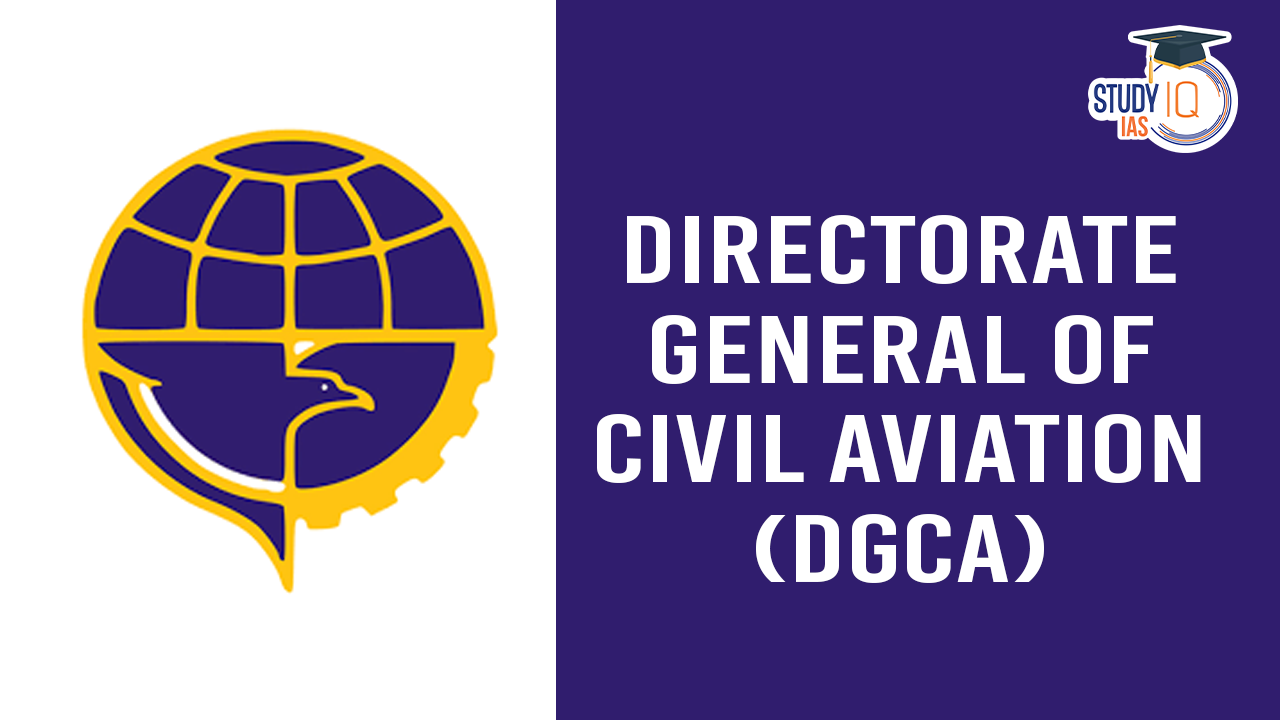Table of Contents
New Chief of DGCA
Recently Senior IAS officer Faiz Ahmed Kidwai was appointed new Director-General (D-G) of the Directorate General of Civil Aviation (DGCA).
About DGCA (Directorate General of Civil Aviation)
- The Directorate General of Civil Aviation (DGCA) is a statutory body established under the Aircraft Amendment Act, 2020. It operates under the Ministry of Civil Aviation, which is the nodal ministry responsible for overseeing all aspects of civil aviation in India.
- DGCA’s Role: As the primary regulatory body for civil aviation in India, DGCA’s primary function is to ensure that aviation operations in the country are safe, secure, efficient, and compliant with international aviation standards.
Key Functions of DGCA
Regulation of Air Transport:
- DGCA ensures that air transport services in India operate smoothly, safely, and efficiently. This includes overseeing the operations of airlines, cargo services, air navigation services, and other related aspects of civil aviation.
- The organization plays a vital role in the development and implementation of aviation safety standards, protocols, and policies across India.
Licensing and Certification:
- One of DGCA’s core functions is issuing licenses to aviation professionals, including pilots, aircraft maintenance engineers, air traffic controllers, and other personnel working in the aviation industry.
- It is also responsible for certifying aircraft and ensuring that aviation companies comply with airworthiness standards before they are allowed to operate.
Safety Audits and Inspections:
- DGCA conducts regular audits and inspections of aviation organizations, including airlines, airports, and other aviation-related entities. These safety inspections ensure that aviation companies adhere to established safety standards.
- The agency monitors operational and safety systems to ensure compliance with both national and international aviation regulations. This helps minimize the risk of accidents or incidents within India’s aviation system.
Investigation of Aviation Incidents:
- The DGCA is tasked with investigating aviation incidents or accidents in the country. This involves gathering data, analyzing evidence, and determining the cause of the incident or accident.
- Following investigations, DGCA recommends changes to aviation safety practices, policies, or equipment to prevent future occurrences, thus continuously improving aviation safety.
International Representation:
- DGCA represents India at international aviation organizations, the most prominent being the International Civil Aviation Organization (ICAO), which sets global aviation safety and operational standards.
- India’s participation in international organizations allows DGCA to align India’s aviation policies with global best practices, facilitates cooperation with other countries, and enhances the country’s standing in global aviation governance.
- The DGCA also works to ensure that India’s aviation sector stays updated with international regulations, particularly regarding aviation safety, security, and environmental practices.
Importance of DGCA
Safety and Security:
- One of DGCA’s most critical functions is ensuring the safety and security of the air transport system in India. This includes overseeing flight operations, ensuring the integrity of aircraft, and making sure all airlines comply with established safety protocols.
- DGCA ensures that all stakeholders in the aviation industry—pilots, crew members, air traffic controllers, and ground personnel—are properly trained and licensed to maintain high safety standards.
Regulatory Oversight:
- DGCA serves as the regulatory authority for aviation in India, setting rules and regulations for airlines, aviation service providers, and other related entities. The body ensures that both private and public aviation companies adhere to laws governing safety, airworthiness, and operational practices.
- The DGCA also handles the registration of aircraft, air operator certificates, and the authorization of flight training organizations.
Support for Growth of the Aviation Industry:
- As India’s aviation industry continues to grow, with a rise in passenger traffic, airline operators, and infrastructure development, the DGCA’s role in regulating and managing the sector becomes even more crucial.
- The DGCA is instrumental in promoting the expansion of civil aviation in India while maintaining strict adherence to safety standards.
Training and Skill Development:
- The DGCA also plays a significant role in promoting and overseeing the training of aviation professionals in India, ensuring that a qualified and skilled workforce supports the aviation industry.
- It helps establish training institutions and programs to meet global aviation standards, fostering development in the Indian aviation sector.
Impact on Global Aviation:
- As India becomes a major player in the global aviation market, the DGCA’s efforts in aligning with international aviation practices help ensure that India is compliant with global regulations and fosters international trust.
- India’s involvement in international forums like ICAO is vital for shaping global aviation policies and strengthening cooperation with other countries to enhance the security and safety of the skies worldwide.
Conclusion
The Directorate General of Civil Aviation (DGCA) plays a pivotal role in shaping the future of India’s aviation sector. The recent appointment of Faiz Ahmed Kidwai as the new Director-General is expected to bring leadership and strategic vision to the organization, reinforcing its critical functions of ensuring safety, efficiency, and global cooperation within India’s aviation industry.
By maintaining regulatory oversight, implementing safety measures, and aligning with global standards, DGCA continues to be at the forefront of India’s growing aviation industry.


 GPS Spoofing and Its Impact in India: A ...
GPS Spoofing and Its Impact in India: A ...
 Amrit Gyaan Kosh Portal: A Comprehensive...
Amrit Gyaan Kosh Portal: A Comprehensive...
 UpLink Initiative: Launched by World Eco...
UpLink Initiative: Launched by World Eco...





















